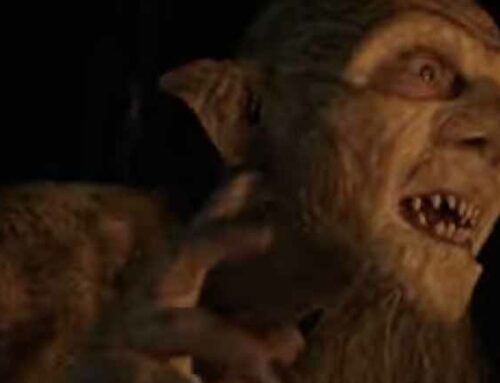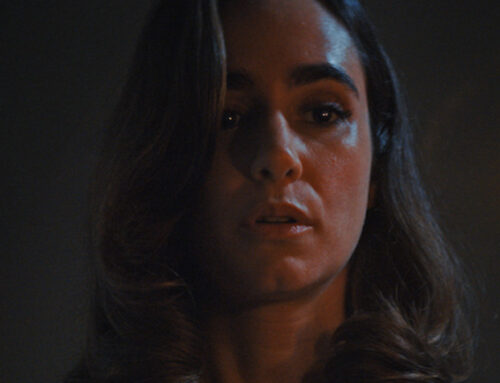“Cinema is the ultimate pervert art. It doesn’t give you what you desire. It tells you how to desire,” reads the blue letters on the black screen. Opening with a quotation from Slovenian philosopher Slavoj Žižek’s The Pervert’s Guide to Cinema oddly sets a paradoxical tone of attempting to take very seriously what is also something done for low budget fun. We Kill for Love is an almost-three hour documentary on the history of the direct-to-video/cable erotic thriller, which showed up in the eighties and lasted until the late nineties, when the genre seemed to die out. Presented in the style of such films – voiceover, establishing shots of a film-noir in eighties color pallets (lots of neon red and cool blues – I guess primary colors are the most erotic), the film defines itself as “A documentary that goes in search of the forgotten world of the direct-to-video erotic thriller, an American film genre that once dominated late night cable television and the shelves of neighborhood video stores.”
Utilizing clips from dozens if not over a hundred films, interviews with performers, writers, directors and producers, and a narrative structure that examines the genre both chronologically and by theme, the documentary does a deep examination into the how, why, and what of the genre, arguing for its relevance, importance, and significance, even if the titles are more or less all interchangeable. As someone who grew up in the era of going to the video store and seeing all these direct-to-video thrillers with a woman in lingerie on the cover, a man behind her, holding her or a weapon or both, boasting a title such as “Dangerous Passions” or “Passionate Obsession” or “Dangerous Obsession” – you can (as the film shows) take the same ten or twelve words and come up with hundreds of provocative but meaningless titles. The film covers everything, from major blockbusters such as Fatal Attraction and Basic Instinct to forgettable direct-to-cable skinfests. The performers make compelling arguments for the production of these films as both socially useful and career-enhancing, with one actress admitting she did erotic thrillers while in the early stages of pregnancy as it allowed her to get health insurance through the acting union so she could give birth.
Director/Producer Anthony Penta locates the origins of these films in film noir and the thrillers of Alfred Hitchcock. He goes on to examine the influence of technology on the rise of the genre – how cable television and the VCR’s advent in the early eighties meant both new markets and a need for content. Blockbuster Video would not carry explicit pornography, but was happy to have hard-R thrillers on the shelf, and Showtime, HBO and especially Cinemax opened doors for the erotic thriller not otherwise possible. Zalman King’s series Red Shoe Diaries normalized the erotic thriller on television, specifically seeking to play to women in the audience. Technology was also useful within the films, as so many of them involved the use of cameras and recording equipment (then new for home use) to record people in illicit acts. Penta thus also shows how these films frequently indicted their own viewers as voyeurs and perhaps even perverts for wanting to see into the bedrooms of dangerous women and the men obsessed with them. The documentary also examines the conflicted relationship between erotic thrillers and video pornography, and such things as the shaping influence of Playboy TV.
Considering most of the films in question ran ninety to one hundred minutes, a one hundred and sixty-three minute documentary seems a bit excessive. Although I was never bored, I was also aware of how long I sat watching We Kill for Love. Amusingly, the music for the film was composed by Herman Beeftink, who composed the music for over a hundred erotic thrillers and softcore videos, thus completing the meta-element of a documentary on erotic thrillers framed as an erotic thriller itself.
8 out of 10
| We Kill for Love | ||
| RATING: | NR |
We Kill For Love Official Clip |
| Runtime: | 2 Hrs. 43 Mins. | |
| Directed By: |
Anthony Penta
|
|
| Written By: | Anthony Penta | |







